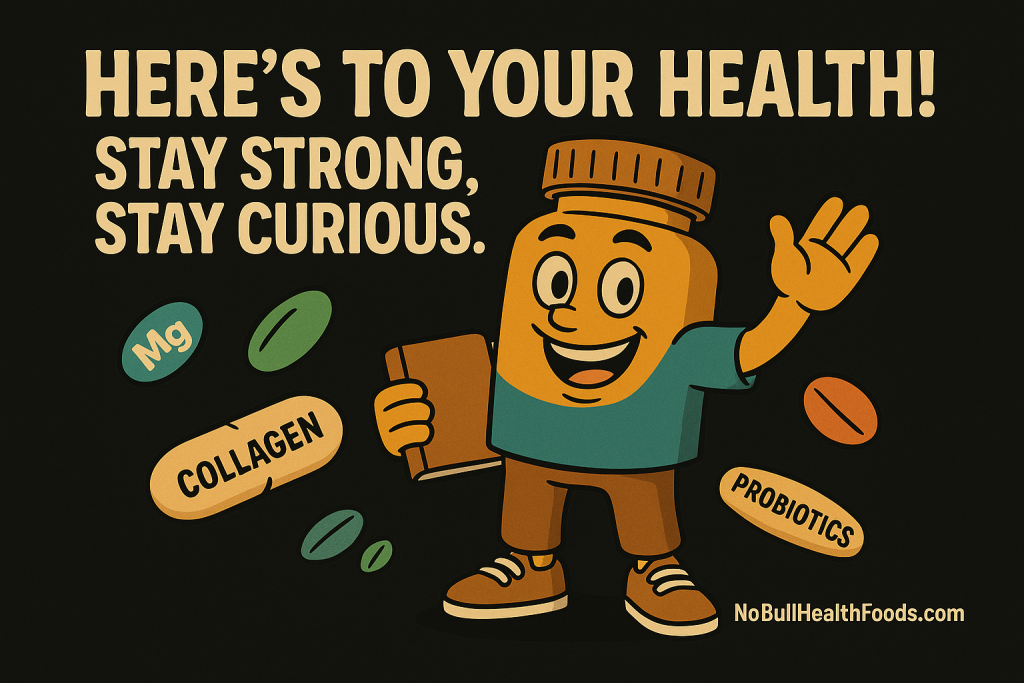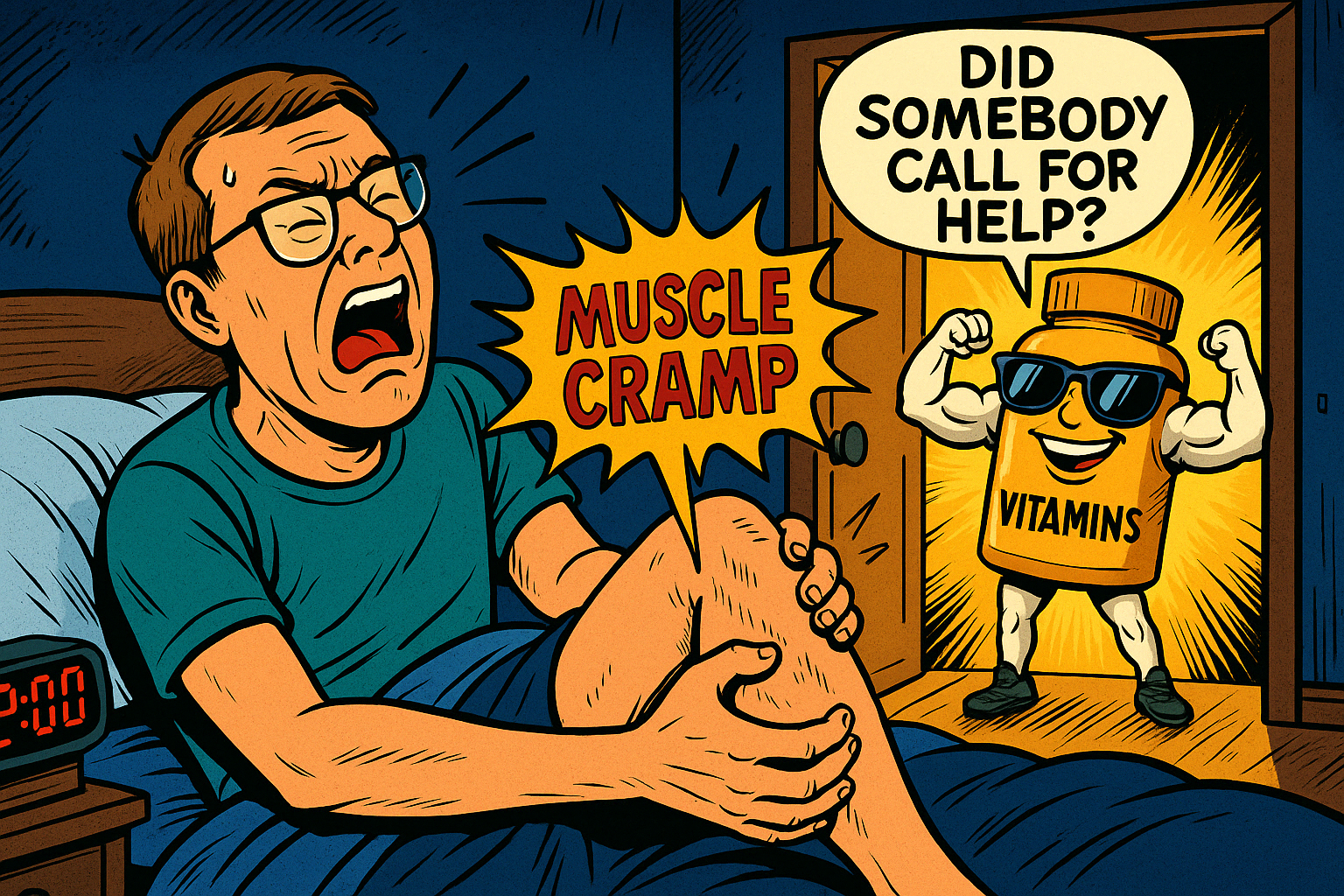If you’re waking up with painful muscle cramps, or feeling sharp spasms in your legs or feet during the day, it’s easy to blame dehydration or overexertion. But the real issue might be something deeper: a deficiency in essential vitamins and minerals.
This is especially true if you’re rapidly losing weight, following a restricted diet, or taking medications like Ozempic (semaglutide), which can reduce appetite and nutrient intake. Your muscles depend on key nutrients to contract and relax properly — and when they don’t get what they need, they cramp.
Let’s break down what causes muscle cramps, who’s most at risk, and the best nutrients to help you stop cramping for good.
🦵 Why Do Muscle Cramps Happen?
Muscle cramps — those sudden, involuntary spasms that seem to come out of nowhere — are often caused by:
- Electrolyte imbalances
- Dehydration
- Overused or strained muscles
- Restricted blood flow
- Medications (including diuretics and Ozempic)
- Rapid weight loss or nutrient deficiencies
If you’re cutting calories, skipping meals, sweating excessively, or on a weight-loss plan, your body might not be getting enough of the nutrients it needs to maintain muscle function and hydration.
👉 You can learn more about causes of muscle cramps on the official NHS website.
⚡ 5 Vitamins and Minerals That Help Stop Cramps
Here’s what science (and clinical practice) says your muscles depend on:
1. Magnesium
- What it does: Helps muscles relax after contraction
- Who needs it most: Older adults, athletes, people on diuretics or Ozempic
- Best sources: Spinach, almonds, pumpkin seeds, whole grains, or magnesium citrate supplements
2. Potassium
- What it does: Supports fluid balance and nerve function
- Best sources: Bananas, sweet potatoes, avocados, coconut water, white beans
3. Calcium
- What it does: Enables muscles to contract properly
- Who’s at risk: Postmenopausal women, vegans, those with low dairy intake
- Best sources: Dairy, fortified plant milks, tofu, sardines, leafy greens
4. Vitamin D
- What it does: Aids calcium absorption and may reduce chronic muscle pain
- Best sources: Sunlight, oily fish, eggs, fortified cereals, or vitamin D3 supplements
5. Vitamin B12
- What it does: Essential for nerve health and muscle coordination
- At risk: Vegans, older adults, people with gut absorption issues (IBS, Crohn’s)
- Best sources: Meat, eggs, dairy, or B12 sprays/tablets
💊 Are You at Risk of Deficiency?
You may be low on these nutrients if you:
- Take Ozempic, Wegovy, or other weight-loss medications
- Follow a calorie-restricted or low-carb diet
- Are over 60 (nutrient absorption naturally declines with age)
- Take diuretics or certain blood pressure medications
- Have digestive issues like IBS, Crohn’s, or coeliac disease
- Sweat heavily due to hot weather or exercise
Even mild deficiencies can cause cramps, twitching, or “restless leg” symptoms — especially at night.
✅ What You Can Do Today
If you’re tired of muscle cramps disrupting your day — or night — here’s where to start:
- Review your multivitamin — Make sure it includes magnesium, potassium, calcium, vitamin D, and B12
- Focus on real food — Eat more leafy greens, nuts, legumes, oily fish, avocados, and whole grains
- Stay hydrated — Dehydration can amplify the effects of nutrient loss
- Supplement wisely — Especially if your appetite is reduced or you’re losing weight fast
- Try an electrolyte drink — Choose one with magnesium and potassium before bed if you’re getting nighttime cramps
🛑 Avoid sugary sports drinks — look for clean, low-sugar electrolyte formulas with meaningful doses of key minerals.
🧠 Final Thoughts: Don’t Let Muscle Cramps Control Your Day
Vitamins and minerals for muscle cramps aren’t just trendy supplements — they’re essential for maintaining muscle function, especially during weight loss, diet changes, or medication use. Whether it’s magnesium, potassium, vitamin D, calcium, or B12 — these nutrients all play a critical role in helping your muscles move without pain.
Don’t wait for another painful cramp to remind you. Take action today, fuel your body with the right nutrients, and get back to moving freely — without the wince.

👉 Like this article? Share it on Facebook 💬
➡️ Join our private Facebook group here! [Join Now]

Leave a Reply